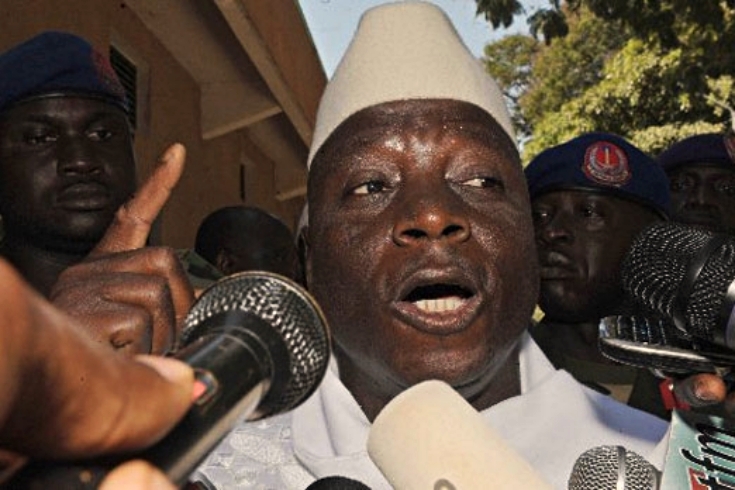Gambiaj.com – (BANJUL, The Gambia) – In a swift and uncompromising move that underscores his continued grip on the APRC No Alliance faction, exiled former President Yahya Jammeh has ordered the expulsion of four senior members barely days after their resignations, deepening the crisis engulfing the embattled splinter group.
In a press statement dated 18 July 2025 and signed by First Deputy Party Leader Momodou Yafaye Tamba, the party announced the immediate expulsion of Mr. Foday Chorr, Mr. Lamin Tamba, Mrs. Aisha Cole, and Mr. Pa Modou Mbowe.
All four were formerly key figures in the faction’s external communications, outreach, and international affairs.
The statement made it clear that the decision came directly from Jammeh himself, who continues to issue orders from exile in Equatorial Guinea.
The timing of the expulsions—coming rapidly on the heels of public resignations by some of those named—has raised eyebrows and suggests a deliberate effort by Jammeh to assert authority and control the narrative amid mounting internal rebellion.
Political observers see the move as emblematic of Jammeh’s trademark strongman politics: assertive, reactive, and intolerant of dissent.
“It’s a classic play from Jammeh’s book—neutralize opponents before they gain traction. These expulsions are as much about silencing defectors as they are about maintaining an illusion of discipline within a crumbling structure,” a political analyst in Banjul noted.
Among those expelled is Lamin Tamba, who recently announced his resignation as Director of International Media.
His public departure, along with others, was widely seen as the most visible sign yet of a faction in disarray, torn between loyalty to Jammeh and the reality of operating under his remote-control leadership from exile.
The party also addressed what it called “ongoing confusion” about the status of Mr. Habib Secka, who had previously claimed to have been dismissed by the executive, not by Jammeh.
The release flatly rejected Secka’s narrative, declaring that only Yahya Jammeh has the authority to fire party members. “Whoever is fired from his/her position or otherwise from the party must have been fired by the party leader,” it reiterated, a statement that once again highlights the centralization of authority in the hands of the former president.
This latest purge comes against the backdrop of weeks of infighting, public disagreements, and a series of resignations that have rendered the APRC No Alliance faction increasingly dysfunctional.
The faction has struggled to maintain cohesion and relevance amid internal dissent and broader questions about its future direction, especially with Jammeh’s influence proving both magnetic and corrosive.
Jammeh’s decision to expel top executives instead of acknowledging their voluntary exits suggests a desire to control the party’s image and to punish perceived betrayal.
But analysts warn this approach risks accelerating the implosion of a group already battered by fragmentation, credibility issues, and generational disconnect with younger voters.
As more resignations loom and internal fractures widen, the once-feared APRC No Alliance faction now appears to be locked in a slow-motion collapse—one that even Yahya Jammeh’s heavy-handed tactics may no longer be able to stop.










